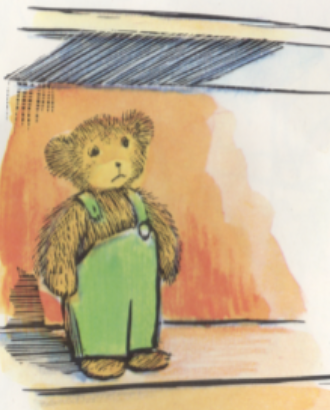 Years ago, I saw Jacques Tati’s Playtime in 70mm on the enormous screen of Champagne, Illinois’ Virginia Theater. I’d just dashed in from a spring thunderstorm that had liberated me from a fussy outdoor cocktail party, and the film’s awkward, swooping grace–alternately eager and morose, denatured and abloom–was just what the doctor ordered. I thought I’d never find a more ideal context in which to see the 1967 masterpiece, but on this very cold Thanksgiving, I ducked into a morning screening at the Lower East Side’s Metrograph. Shoulder to shoulder with other refugees from the most family-oriented, ideologically ill-conceived holiday of the year, I didn’t just feel community. I felt communion.
Years ago, I saw Jacques Tati’s Playtime in 70mm on the enormous screen of Champagne, Illinois’ Virginia Theater. I’d just dashed in from a spring thunderstorm that had liberated me from a fussy outdoor cocktail party, and the film’s awkward, swooping grace–alternately eager and morose, denatured and abloom–was just what the doctor ordered. I thought I’d never find a more ideal context in which to see the 1967 masterpiece, but on this very cold Thanksgiving, I ducked into a morning screening at the Lower East Side’s Metrograph. Shoulder to shoulder with other refugees from the most family-oriented, ideologically ill-conceived holiday of the year, I didn’t just feel community. I felt communion.
Tati mounted an entire mid-20th century cosmopolis outside of Paris for his poker-faced pratfall in gloriously technicolor drab, and its mostly noverbal story is conveyed so lucidly that the few spoken lines and handful of languages  in which they are uttered are virtually irrelevant. Following a host of mid-‘60s characters through one day in this sound-stage Paris, the film’s protagonist is the human race itself as seen through a National Geographic sort of lens. As stylized as a Buster Keaton jig with Ayn Rand sharp corners and floppy flowered hats, every moment recalls the very droll mis-en-scenes buried in more narrative-driven films of the same era. Imagine a whole film cut from the same swoon as that infamous Breakfast at Tiffany’s party scene–the heiresses, vamps, barking agents, woman laughing, woman crying, treacherously long cigarette holder, prowling Cat, and Irving baby, o Irving baby. (Imagine a life cut of that cloth as well.) Continue Reading →
in which they are uttered are virtually irrelevant. Following a host of mid-‘60s characters through one day in this sound-stage Paris, the film’s protagonist is the human race itself as seen through a National Geographic sort of lens. As stylized as a Buster Keaton jig with Ayn Rand sharp corners and floppy flowered hats, every moment recalls the very droll mis-en-scenes buried in more narrative-driven films of the same era. Imagine a whole film cut from the same swoon as that infamous Breakfast at Tiffany’s party scene–the heiresses, vamps, barking agents, woman laughing, woman crying, treacherously long cigarette holder, prowling Cat, and Irving baby, o Irving baby. (Imagine a life cut of that cloth as well.) Continue Reading →


